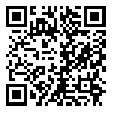This Day in Unitarian Universalist History February 10
Caroline Veatch, in back, with sister Della Evans
1945 – The North Shore Unitarian Church was founded in Long Island, New York. It is now the Unitarian Universalist Congregation of Shelter Rock in Manhasset, New York. As part of its founding outreach, the congregation contacted an Episcopalian named Caroline Veatch, who provided for the church to receive income from her oil fields in Germany after her death. This is now the largest single source of funding for the Unitarian Universalist Association and its work. Read more about Caroline Veatch and the Unitarian Universalist Congregation of Shelter Rock at: www.HarvardSquareLibrary.org – the digital library of Unitarian Universalism.
The post February 10 first appeared on Harvard Square Library.


